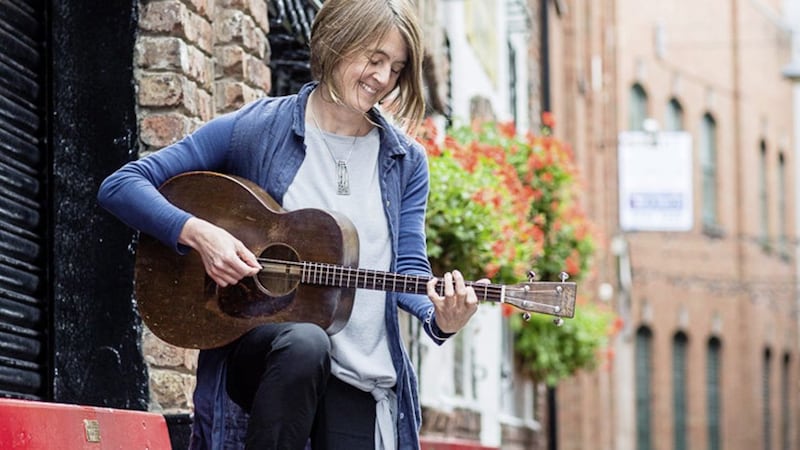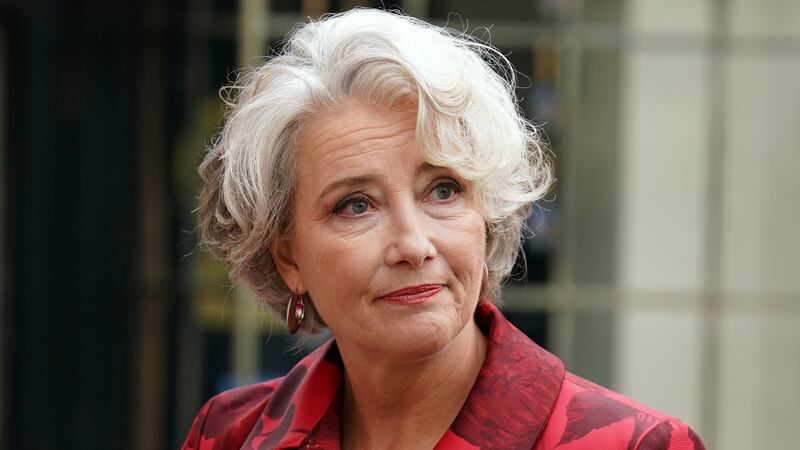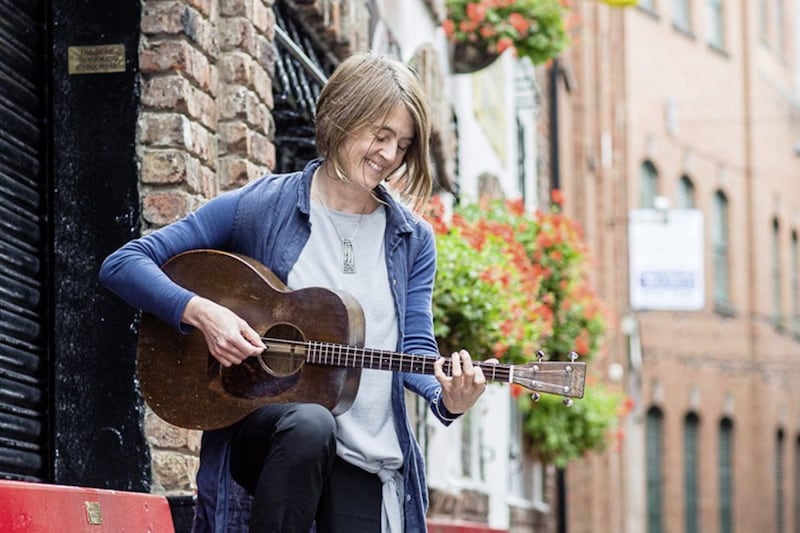IT’S good to have things in common with the people you’re interviewing. When I tell Karine Polwart that I enjoy her haikus – a major form of Japanese verse, written in 17 syllables divided into three lines of five, seven, and five syllables – that she has been writing on twitter, she let’s out a hearty laugh.
“Ha ha, that’s so funny,” she says. “Because every year we go on holidays to Arran, my mum and dad, brothers and sisters and my own kids and all their cousins, and this year my dad, instead of taking lots of photographs, put up a whiteboard on the wall and everyone had to write their own haikus about the summer holiday."
I get the point entirely. To me, haikus are like beautiful pictures or photographs of one moment in time that of themselves add a heightened reality to the subject.
“I think that’s beautiful and I’ve been writing one or two every day,” Karine tells me.
“They really help you notice things. I’m quite visual although I don’t take photographs but I like looking at things and seeing connections with something else.”
Which brings us neatly to Karine’s latest project, Wind Resistance, a step into the unknown for her as she brings the highly acclaimed one-woman show to the MAC for the Belfast International Arts Festival next month.
Long-term fans of Karine will know her as a singer with Malinky and the Battlefield Band, while others have been beguiled by her solo work on albums such as Traces, This Earthly Spell and The Fairest Floo’er and they will be fans of her lyrical writing which often have strong political messages.
Anoraks will know her as a writer for theatre and for film but Wind Resistance is a combination of spoken word, songs old and new, memoir, biography, history and is a paean to the wonders of Fala Flow, a bog near where Karina lives in Parthead a village in Midlothian, south of Edinburgh.
“Just before you meet the Borders, there is a peat bog which I’m only just discovered over the past number of years although I’ve lived there for a decade. Fala Flow is a tiny little peat bog but it’s the place where the pink-footed geese come in the winter from Iceland and from Greenland and they come to Fala Flow because there is a wee lochán in the middle of the moor," she says.
“I love it that they fly over the village where I live and there is something about them that is so symbolic of the change of season and the idea that they have come from somewhere else.
“I was just standing watching the geese fly over my back garden about two years ago and it suddenly dawned on my that I didn’t know why they flew like that, in that special V-shaped formation called a skein.”
So Karine went off and did some research and came up with a story about the wonders of nature but also the almost animalistic hardships that people went through in this area of Scotland, something that Karine knows personally, but by extension, the universal cycles of birth and life and death.
“On the bog, there used to be a medieval hospital up on Soutra Hill that was founded in the 13th century. The hospital was in an Augustinian monastery and I had this notion of a monastery being like one building but this was like a small town but even back then they were developing anaesthetics and surgical techniques as well as offering sanctuary.
“I was quite moved by the idea that there would be friars and priests up on the hill whose sole purpose would be to help people and use the mosses as wound dressings. People would have eaten the heath pea to stave off hunger and they would have grown plants specifically for medicinal purposes and so on so I see Fala Flow as a kind of healing landscape."
Wind Resistance is inspired by an elderly neighbour of Karine’s, Molly Kristensen. Molly, who was in her late-80s when Karine first met her and who has died since, would talk about her youth, of going to school on horseback and how her mother had died in childbirth and she was brought up by her father and her aunties, how she married a man from Denmark.
Molly was one of those people who knew the old names of fields and everything about local history.
“When she died, I wrote a song about her called Salters Road because she lived on the old salt smuggling road,” explains Karine. “Learning about the old monastery and the hospital – Molly was born in 1920 when there was no midwifery care, nothing to support her coming into the world – I remembered that this is the same landscape in which my children were born.
The day before Karine’s daughter was born the road to the hospital was blocked because of snow.
“So amongst the threads in Wind Resistance there is the idea of me going walking in the moor and what I get out of it, the love I have for it and the solace I get from it; then there are all these other people who lived here and I think about Molly’s parents meeting in this landscape as young people.”
But in the pink-footed geese who fly in a V-formation to save energy and where each bird takes over from those in front who are too tired, there is a message for mankind when the NHS is under threat as never before and that message is beautifully delivered in Wind Resistance.
:: Wind Resistance, the MAC, October 11 and 12, 7:45pm. Tickets: £16 / £14



